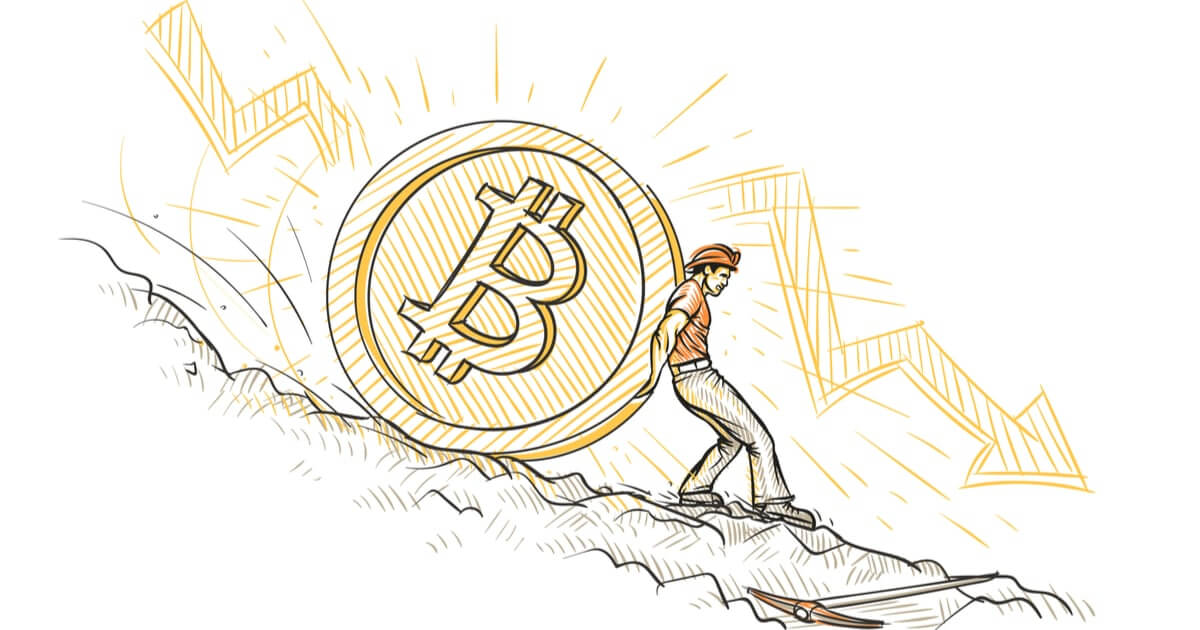US Awaits Recession While Bitcoin Becomes the Last Resort
Sarah Tran Aug 16, 2019 07:00
The trade-war worries affected the financial markets on Wednesday, while stocks and commodities tumbled in Europe and the United States. Equities declined more than 1% in the United States after the S&P 500 Index fell 2.93%, the NASDAQ shed 3%, and the Dow Jones tumbled over 3%.

What happened this week?
The trade-war worries affected the financial markets on Wednesday, while stocks and commodities tumbled in Europe and the United States. Equities declined more than 1% in the United States after the S&P 500 Index fell 2.93%, the NASDAQ shed 3%, and the Dow Jones tumbled over 3%.
Investors shifted towards the safety of government bonds. Yields on 10-year US treasury bonds inverted against the 2-year yield for the first time since 2007, prior to the Great Recession.
Source: Commercial Loan Direct
30-year treasuries dropped below 2% for the first time, signaling a recession as a sign of how nervous investors are about the immediate outlook for the economy. When shorter-term rates are higher than the longer-term bond yields, an inverted yield curve is formed. The inverted yield curve is a reflection of the investors’ view of the US economy. Treasury yield curve inversions often indicate that the US recessions and bear markets are on their way.
Tom Essaye, the founder of The Sevens Report, noted to clients:
"Historically speaking, the inversion of that benchmark yield curve measure means that we now must expect a recession anywhere from six-to-18 months from today."
While investors have been continually investing in bonds despite being promised a tiny rate in return, long-term yields are negative in Japan and Germany. The global economy has mirrored the fears of a slump in the United States, notably given the trade war with China.
Bitcoin becoming the last resort in Argentina and Hong Kong
Turmoil in Argentina and Hong Kong encouraged local investors to pay a premium for Bitcoin. As the peso took a dive due to election uncertainty, Bitcoin was trading at a 10% surge on the peer-to-peer platform, LocalBitcoins.com compared to international cryptocurrency exchanges.
Bitcoin was trading at a 4% premium in Hong Kong as anti-government protestors have been clashing with the riot police. Since the protests began in June, the Hong Kong stock market has been seeing losses of up to 15%.
Rayne Steinberg, CEO of Los Angeles based crypto hedge fund, Arca noted:
“Bitcoin is becoming the asset of last resort in areas of extreme currency devaluation and political uncertainty. In the last week alone, Bitcoin is up approximately 50% against the Argentine peso and trading at a significant premium on local exchanges. And they are not alone, joining the ranks of Venezuela, Hong Kong and Turkey who have also experienced similar shocks.”
The price of Bitcoin was expected at a surge due to the inverted yield curve along with the premiums in Argentina and Hong Kong. However, this was not observed in the crypto market. A possible reason explained by Igor Chugunov, CEO of Credits Blockchain, was that the Chinese found crypto to be a safe haven but have since been leaving since trade tensions have loosened.
Image via Shutterstock
.jpg)